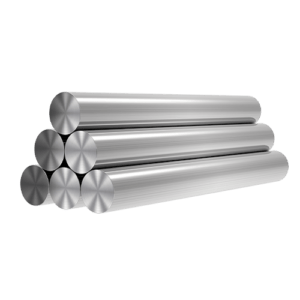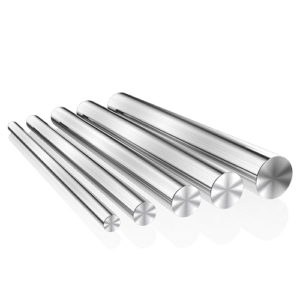Welcome to My Blog!
Before we dive into the content, I’d love for you to join me on my social media platforms where I share more insights, engage with the community, and post updates. Here’s how you can connect with me:
Facebook:https://www.facebook.com/profile.php?id=100090063158454
Now, let’s get started on our journey together. I hope you find the content here insightful, engaging, and valuable.
Introduction

Qilu 430 stainless steel round bar is a popular material known for its exceptional durability and versatile applications. This grade of stainless steel, part of the ferritic family, is primarily composed of chromium, which imparts unique properties such as corrosion resistance and formability. This article will explore the properties of Qilu 430 stainless steel round bar and its diverse uses across various industries. Understanding these properties and applications will help you make informed decisions for your projects and manufacturing needs.
Chemical Composition
The chemical composition of Qilu 430 stainless steel round bar is critical to its performance and suitability for various applications. It typically consists of:
Chemical Composition
| Element | Percentage |
|---|---|
| Chromium (Cr) | 16-18% |
| Carbon (C) | ≤0.12% |
| Manganese (Mn) | ≤1.0% |
| Silicon (Si) | ≤1.0% |
| Phosphorus (P) | ≤0.04% |
| Sulfur (S) | ≤0.03% |
| Iron (Fe) | Balance |
This composition provides a balance of strength, ductility, and corrosion resistance, making it suitable for various demanding applications.
Mechanical Properties
The mechanical properties of Qilu 430 stainless steel round bar determine its performance under stress and load. Key properties include:
Mechanical Properties
| Property | Value |
|---|---|
| Tensile Strength | 480 MPa (min) |
| Yield Strength | 275 MPa (min) |
| Elongation | 22% (min) |
| Hardness | 80-90 HRB |
These properties ensure that the material can withstand mechanical stresses while maintaining its shape and integrity.
Corrosion Resistance
Qilu 430 stainless steel round bar offers moderate corrosion resistance, making it suitable for environments where exposure to moisture and mild corrosive agents is common.
Corrosion Resistance
| Corrosive Agent | Resistance |
|---|---|
| Acids | Moderate |
| Saltwater | Low to Moderate |
| Alkaline Solutions | High |
While not as resistant as some other stainless steel grades, its corrosion resistance is sufficient for many applications, especially in dry or mildly corrosive environments.
Thermal Properties
Understanding the thermal properties of Qilu 430 stainless steel round bar is essential for applications involving heat exposure.
Thermal Properties
| Property | Value |
|---|---|
| Thermal Conductivity | 25.0 W/m·K |
| Coefficient of Thermal Expansion | 11.0 µm/m·K |
| Maximum Service Temperature | 850°C (1562°F) |
These properties highlight the material’s ability to conduct heat and its stability at high temperatures, making it suitable for high-temperature applications.
Fabrication and Machinability
Qilu 430 stainless steel round bar is known for its ease of fabrication and machinability. It can be cut, drilled, and shaped with standard tools, which is advantageous for manufacturing and construction.
Fabrication and Machinability
| Process | Capability |
|---|---|
| Cutting | Easy with standard tools |
| Drilling | Good performance |
| Welding | Difficult; requires special techniques |
While it can be welded, it requires specific techniques and considerations to ensure strong, quality welds.
Applications
Qilu 430 stainless steel round bar is used in a wide range of applications across various industries due to its properties. Some common uses include:
Applications
| Industry | Application |
|---|---|
| Automotive | Exhaust systems, trim components |
| Kitchen Equipment | Appliances, utensils, fixtures |
| Construction | Structural supports, handrails |
| Architectural | Decorative elements, facades |
These diverse applications demonstrate the material’s versatility and effectiveness in different environments and uses.
Advantages and Limitations

Understanding the advantages and limitations of Qilu 430 stainless steel round bar can help in making the best use of the material for specific applications.
Advantages and Limitations
| Advantages | Limitations |
|---|---|
| Good Corrosion Resistance | Lower resistance in harsh conditions |
| High Strength and Durability | Limited weldability |
| Cost-Effective | May not be suitable for high-stress applications |
These factors should be considered when choosing Qilu 430 stainless steel round bar for various projects to ensure it meets the required performance criteria.
Conclusion
Qilu 430 stainless steel round bar is a highly versatile material with numerous applications across different industries. Its unique properties, including mechanical strength, moderate corrosion resistance, and thermal stability, make it suitable for various uses from automotive components to kitchen equipment and architectural elements. Understanding the properties, benefits, and limitations of this material will help you leverage its advantages effectively in your projects.
FAQ
What is the main difference between Qilu 430 stainless steel and other stainless steel grades?
Qilu 430 stainless steel is primarily ferritic with high chromium content, providing good corrosion resistance and formability but less toughness compared to austenitic grades like 304.
Can Qilu 430 stainless steel round bar be used in outdoor applications?
Yes, it can be used outdoors but may not perform as well in highly corrosive environments compared to other stainless steel grades with higher corrosion resistance.
How is Qilu 430 stainless steel round bar fabricated?
It can be cut, drilled, and machined using standard tools, though welding requires specific techniques to ensure strong, quality joints.
What is the maximum temperature Qilu 430 stainless steel can withstand?
It can typically withstand temperatures up to 850°C (1562°F) without significant degradation of its properties.
Is Qilu 430 stainless steel round bar cost-effective?
Yes, it is generally more cost-effective compared to higher alloyed stainless steels while still providing good performance for many applications.
